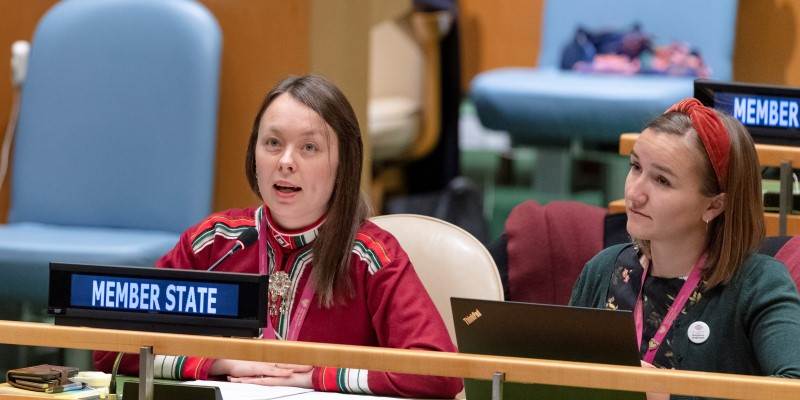Check against delivery
President, Excellencies,
Norway welcomes this occasion to reflect as we come to the end of the International Year of Indigenous Languages.
Norway is proud to be one of the ten governmental partners of the International Year. And we welcome the opportunity to discuss ideas, challenges and good practices on strengthening indigenous languages.
We particularly welcome the inclusion of indigenous peoples in today’s event, to hear their reflections on our work during this year. Effective participation by indigenous peoples themselves is crucial.
As we know; indigenous peoples make up less than 6% of the global population, but they speak more than 4,000 of the world’s languages.
Each of these languages represent our shared global history and culture.
As noted in the Action Plan: knowledge is often captured in specific words which can’t always be easily transferred between languages. Meaning that the loss of an indigenous language could also mean the permanent loss of knowledge. Knowledge, which could help us build peaceful, resilient societies, and ensure sustainable development.
And as the International Year highlights, Indigenous languages are in a particularly vulnerable situation.
According to UNESCO around 2,680 languages are endangered languages. Among them are the Sami languages spoken in Norway, Sweden, Finland and Russia.
Unfortunately, this is a situation I have personal experience with. I have lost the indigenous Sami language of my ancestors. For generations, we saw a rapid decline in persons openly declaring themselves to be Sami in Norway, not daring to speak our language. This was the case for my grandparents. Meaning I never grew up hearing the indigenous Sami language or knowing about my indigenous heritage. Sadly, my family’s history is all too common, and is faced by so many Samis in Norway, and I’m sure other indigenous people across the globe.
Luckily, this is changing. My generation is returning to our heritage with pride, as I have. We no longer feel the shame of our grandparents. Our children are proud to identify themselves as indigenous Sami.
The ability to speak the language is key to unlock both the identity and the knowledge of indigenous people.
President,
All this to say - we truly understand the need to preserve linguistic diversity. Through modern technology and traditional ways, we must continue to promote and revitalise indigenous languages. And Norway welcomes the spotlight this International Year has shone on this important issue.
Thank you.
